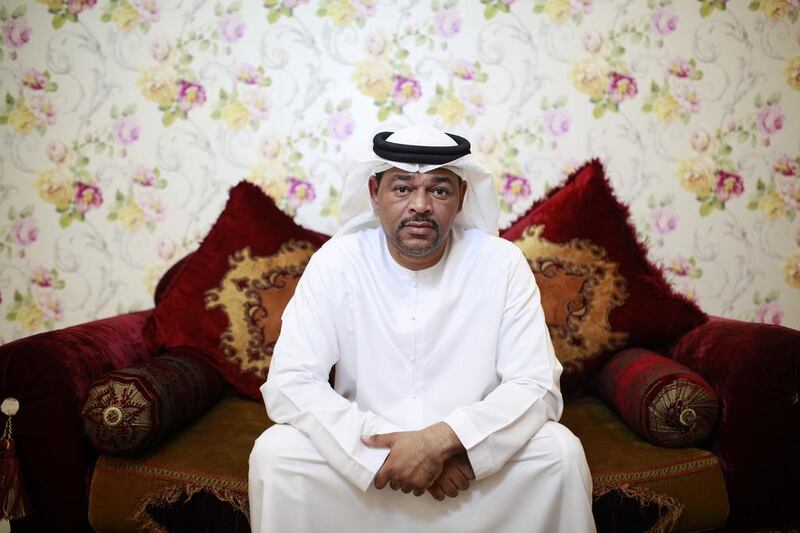ABU DHABI // Hashel Al Naqbi was part of the first group of Emiratis to celebrate a mass wedding in 1999. But he needed a loan for other marriage costs.
“We are not all born rich. I was born poor,” said Mr Al Naqbi, 36. “I am the eldest of 12 siblings. My father retired when I was young and I had to take care of him and my siblings. Life in the UAE used to be affordable but it isn’t any more. You have to pay for marriage costs, a decent school for your children, daily expenses.
“How can anyone afford it all on their salary?”
He applied to HSBC for a marriage loan of Dh170,000. He was making Dh7,000 a month working for the Armed Forces. The bank took Dh3,000 of that.
He divorced in 2000 and remarried in 2002. This required another loan. “I was living at my parents’ house and needed to build an extension for us and do some maintenance for the house,” Mr Al Naqbi said.
HSBC rejected his second application so he went to RAK Bank, which gave him Dh300,000.
His parents’ house was getting crowded – there were 12 people living there – so he moved to an apartment. His parents became sick and wanted to go abroad for treatment. The Government rejected his request because treatment was available in the UAE.
But he was undeterred.
“My mother and father got sicker in front of my eyes. I couldn’t do nothing.” Mr Al Naqbi applied for another loan, for Dh450,000, and RAK Bank refused. So he went to Fujairah Bank. It deducted Dh11,000 from his – by then – Dh21,000 monthly salary.
He also applied for a Dh132,000 car loan at Abu Dhabi Islamic Bank. But he could not make the payments and the bank sued.
The Khalifa Fund helped to settle the debt, paying off nearly Dh100,000. But he has not paid off the balance.
Mr Al Naqbi retired from the military in 2008, and Fujairah Bank rescheduled his debt, allowing him to make monthly payments of Dh5,500. But his pension is Dh11,750 a month, and there is a warrant for his arrest because of previous defaults. This makes him unable to find another job.
“How can I pay them?” he said. “My rent is Dh45,000 and I can’t pay that. I can’t go back to my parents’ house because there is no place for me and my children.”
salnuwais@thenational.ae
______________________________________________________________
About this special report:
A study by McKinsey & Company in 2011 showed that 70 per cent of UAE nationals younger than 35 are in debt. Car loans are the most popular with Emiratis and unregulated banks do nothing to improve the situation by encouraging locals to take out unsecured loans up to four times their annual salaries. Non-payment of loans has led to countless arrest warrants and jail time. Last year, 3,638 Emiratis had cases filed against them in Abu Dhabi judicial courts for bounced cheques. As a result, the Emirates Foundation and the Ministry of Education have teamed up to educate young people, and tackle the problem of financial illiteracy that plagues the country.
Read more:
■ UAE debt problem to be tackled at school level
■ Case Study: Wife divorces huband over mountains of debt
■ Case Study: Emirati couple believes bank tricked them into unbearable debt






